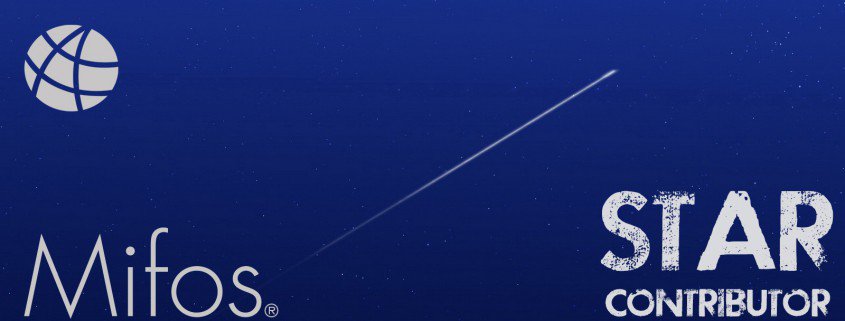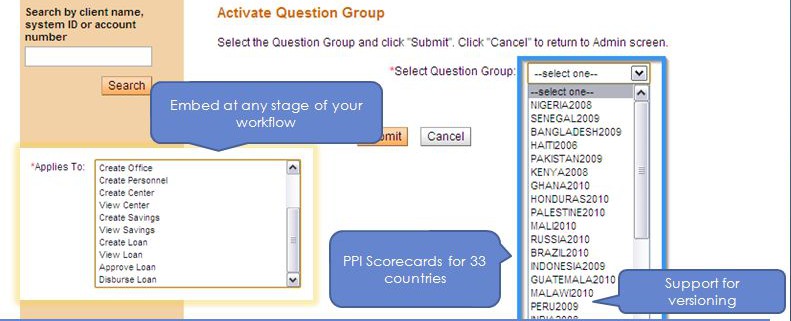The Mifos community would like to extend our congratulations to Ken Banks, the 2011 Pizzigati Prize recipient, for his leadership and innovation in Mobiles for Development through FrontlineSMS. We would also like to recognize Adam Monsen, Mifos software engineer and open source evangelist who we nominated for the award for his fervent passion for open source software and his selfless commitment to empowering users and developers in our community to contribute.

The Tides Foundation announced this morning that it had awarded the 2011 Pizzigati Prize for outstanding contribution in public interest software development to Ken Banks, founder of FrontlineSMS. A tip of the hat to Ken for being a true pioneer in the Mobiles for Development space. Ken’s commitment to openness and user-based design is a brilliant example of what it takes to build a vibrant community. The strong team he’s built, the active community he’s cultivated, and the widespread adoption along with specialized adaptation of FrontlineSMS serve as a blueprint for other open source projects.
Although he wasn’t victorious, we would like to give a pat on the back to Adam Monsen who truly embodies the characteristics of Antonio Pizzigati in helping others realize their dreams through software development. Adam always has the interest of others at heart and is a true advocate of open source software for non profits, proof that developers can enable social change through software. Adam breathes life and energy into our communty that makes it hum – whether it’s donning his track suit for a documentation sprint or responding thoroughly to mailing lists posts as our informal Lord of the Listserv, and as we learned today – baking a great loaf of bread ;).
Here are a few snippets from Adam Monsen’s nomination form:
What is the role of software developers in social change?
What if Farmville, an online game with tens of millions of active users, were used to drive social change rather than simply entertain?
The role of software developers in the social change movement is to bring it to scale. Developers have specialized skills and knowledge: they can build tools that unite, organize, and facilitate positive social change at a scale impossible without software.
Consider poverty, and Mifos. Say you are a microfinance bank serving ten thousand poor clients. Your business is growing, and your clients are doing well. You can prove that your bank is helping the poor to rise out of poverty. You want to grow! To get to one million clients, you need software that can efficiently track loans and savings accounts for these clients: calculating interest, reporting on progress, and integrating with other aspects of your business such as accounting so your service at one million clients is better than your service at ten thousand.

How has the nominee demonstrated leadership in public interest computing?
Adam Monsen is a dedicated advocate of open source software for the public good. His energy as a lifelong OS evangelist and contributor is visible in his effort to ensure openness and transparency in Mifos development. Looking back on the growth in participation in the community, it wouldn’t have been possible without Adam. He is the grease that makes the community run smoothly. Adam is always involved – activism, documentation, ease of collaboration, improving our software, even helping to resolve legal issues. He is the most active voice on the mailing list; first to welcome a new volunteer and always quick to respond on #mifos IRC. Every time I search for information, it’s easily found because he has put in place a tool so that all documentation, discussion, and decisions are open, indexed, and available. Adam helps to grow the community too – he initiated participation with Google Summer of Code, led talks at OSCON and on FLOSS weekly, and collaborates with HFOSS projects like OpenMRS. The Mifos software wouldn’t be where it is today without Adam – as the team re-architects Mifos, he makes it’s a priority to incorporates best-in-class open source components to ensure it is robust and actively maintained.
Ken is in good company with previous winners of the Pizzigati Prize which include our peers, Yaw Anokwa of OpenDataKit and Darius Jazayeri of OpenMRS. We look forward to hopefully joining them in 2012.





